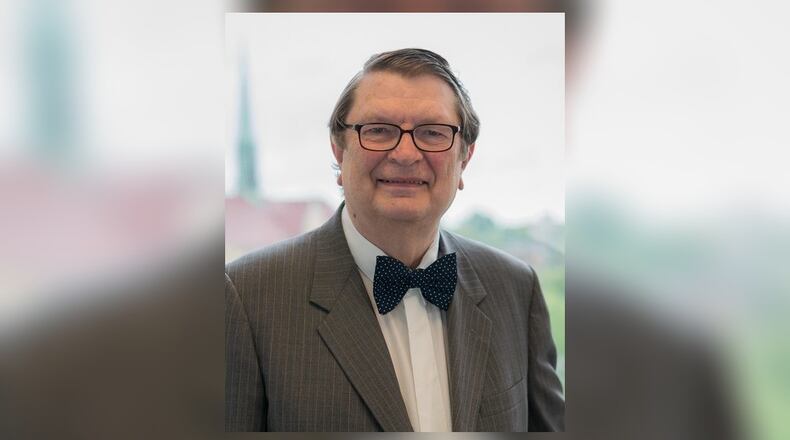As Jimmy Carter shared the experiences he had an hour before daylight in his youth, I often thought of the experiences I had an hour before daylight in my youth. It was those similarities that crystallized my connection to him as a person, making me appreciate him more and more as a true humanitarian.
For those reasons and, of course, out of respect for the presidency, I was thrilled when I won the Dayton Daily News lottery for a ticket when President Carter spoke at the Dayton Convention Center on October 2, 1980. His arrival, of course, came with all the presidential pomp and circumstance, and it was all of that for me. It was the first time I had seen a sitting president. (I had seen Gerald Ford in Dayton before he had the pomp and circumstance of a sitting president.)
Watching him at this town hall event magnified him as a man of the people and as a true humanitarian. In some ways it recounted the message he gave in his Commencement speech at Notre Dame in 1977 when he stressed the value of the “power of words and the ideas that words embody,” concluding in that address how words captivate “our moral values, which never change.” Jimmy Carter continued to emphasize those moral values as he authored more than thirty books on peace. But he also used his actions, from building houses for Habitat for Humanity, to the Camp David Accords, to his continuing efforts to promote democracy by monitoring more than thirty elections in Latin America, Southeast Asia and Africa.
This year the Dayton Literary Peace Prize gave the Ambassador Richard C. Holbrooke Distinguished Achievement Award to President Jimmy Carter, an award that was accepted by his grandsons, Jason Carter and Josh Carter. The award recognized his impressive efforts for peace while President and for his energetic international peace efforts after his presidency, climaxed by the Nobel Peace Prize he received in 2002.
In accepting this award on behalf of his grandfather, Jason Carter emphasized how this award was the perfect recognition for his grandfather’s two favorite loves: Peace and Literature. He went on to connect the Dayton Literary Peace Prize with his grandfather’s “unshakable commitment to finding words that inspire world leaders and people across the globe.” As Josh Carter quoted his grandfather, saying “things change but principles do not change.”
I believe that the title, “An Hour Before Daylight” was Jimmy Carter’s way of saying in his youth that the brighter days for him and the brighter days for his country were before him. Now, as I look back at President Jimmy Carter’s hundred-year life I see a continuing recognition that it is still an hour before daylight, and that the brighter days of our country are still before us.
Dayton attorney Merle Wilberding is a regular contributor.
About the Author


